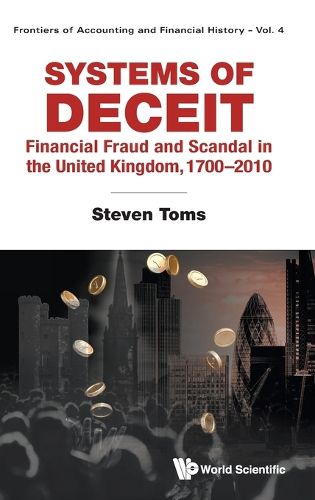Readings Newsletter
Become a Readings Member to make your shopping experience even easier.
Sign in or sign up for free!
You’re not far away from qualifying for FREE standard shipping within Australia
You’ve qualified for FREE standard shipping within Australia
The cart is loading…






Financial fraud is a serious and seemingly intractable problem. Financial scandals regularly punctuate newspaper headlines and regulators and auditors appear bereft of effective responses. But has this always been the case?This book quantifies financial crime in the UK using three centuries of data. It demonstrates how financial fraud and scandal vary according to systematic economic and institutional arrangements. In doing so, it retells the history of British capitalism, from the mercantilism of the eighteenth century to the financial capitalism of the twenty-first century, illustrating the often negative consequences of economic ideology, policy and structure. It identifies periods when fraud has been less problematic and contrasts these with times when it has surged. The variation of outcomes reflects the balance of power between the state, industrial and financial sectors, the provision of credit through risky lending, and the effectiveness of audits. 'Rogue traders' and other flawed individuals are frequently the focus of blame narratives constructed with the intention of deflecting comprehensive systematic reforms.
$9.00 standard shipping within Australia
FREE standard shipping within Australia for orders over $100.00
Express & International shipping calculated at checkout
Financial fraud is a serious and seemingly intractable problem. Financial scandals regularly punctuate newspaper headlines and regulators and auditors appear bereft of effective responses. But has this always been the case?This book quantifies financial crime in the UK using three centuries of data. It demonstrates how financial fraud and scandal vary according to systematic economic and institutional arrangements. In doing so, it retells the history of British capitalism, from the mercantilism of the eighteenth century to the financial capitalism of the twenty-first century, illustrating the often negative consequences of economic ideology, policy and structure. It identifies periods when fraud has been less problematic and contrasts these with times when it has surged. The variation of outcomes reflects the balance of power between the state, industrial and financial sectors, the provision of credit through risky lending, and the effectiveness of audits. 'Rogue traders' and other flawed individuals are frequently the focus of blame narratives constructed with the intention of deflecting comprehensive systematic reforms.